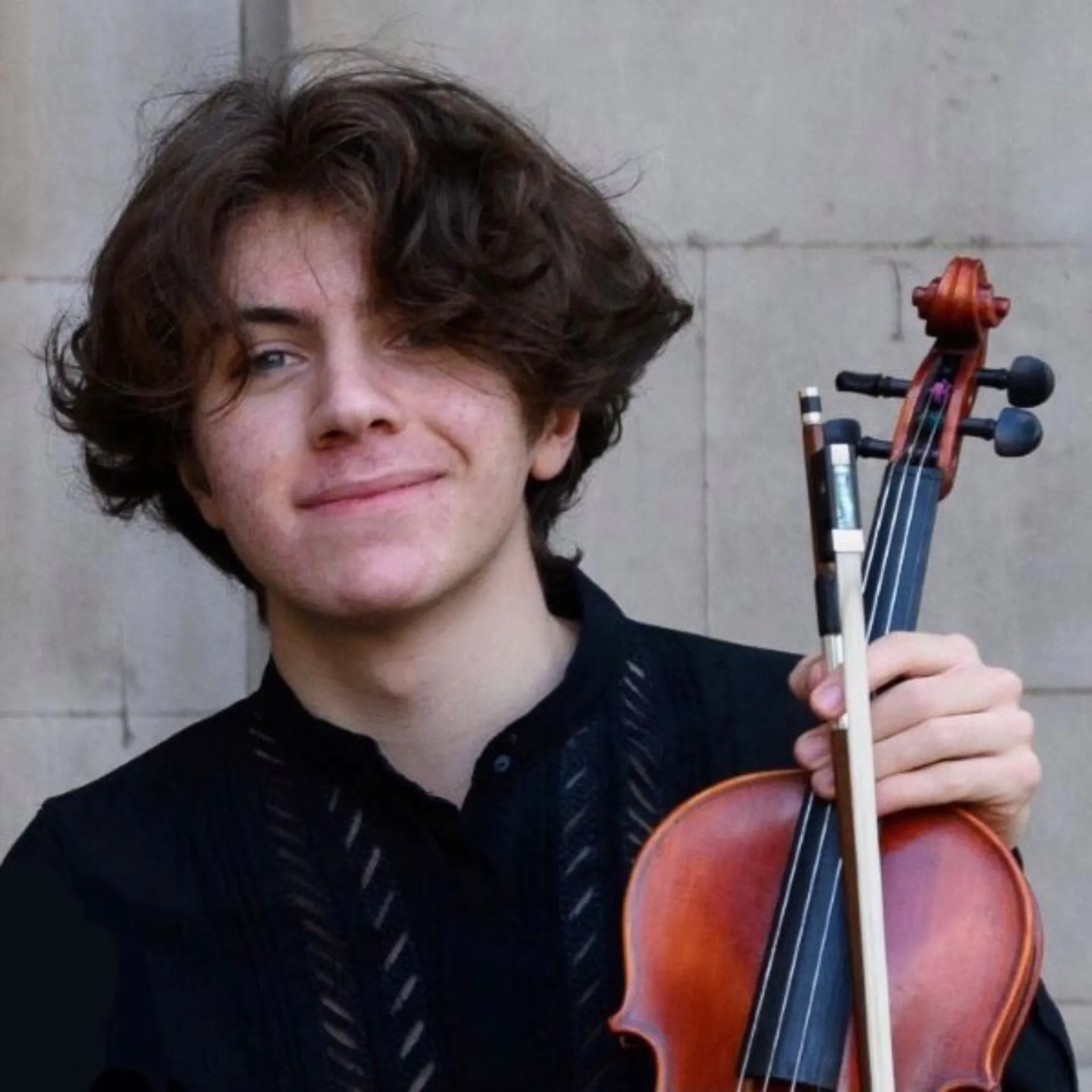J.C. PRELLER

J.C. Preller is one of the composers selected for our Opus 1 scheme for 2023. Here he takes on the Opus 1 Q&A challenge.
How did you get into composing?
My interest in composing started in my first year playing with the National Youth String Orchestra. I remember playing the Glazunov Theme and Variations for string orchestra, which in turn inspired me to write a set of my own variations for string quartet. Following that, my bass teacher suggested I apply to the Junior Royal Academy of Music, and having been here for 6 years, I am still inspired every week. I have had the pleasure to work with some amazingly inspiring musicians and conductors, who have all challenged me to explore composition with a broader lens. The Junior Royal Academy of Music has given me many opportunities to write for ensembles of all sizes, from orchestras to piano duos, and allowed me to work with conductors such as Suzie Collier and Dominic Grier, who have encouraged me, and consequently my love of composition has grown.
What sort of music do you like to write?
My musical upbringing was characterised by listening to and playing in string orchestras, so it is probably no surprise that this love of strings has remained at the core of my writing throughout my time as a composer. I primarily write for string ensembles and orchestras, and aim to explore extended and unconventional string techniques which I then use as tools to paint my own soundscapes through these instruments. Much of my inspiration comes from art in the broader sense - my belief is that all art forms do coexist in some way, and I often find that when I compose I can imagine the visual art that could exist within it.. At the centre of all these facets remains this interest in creating an overall soundworld, through which I can convey a broader idea, or feeling. Being an artist who works mainly with installations and textiles, it’s really cool to get to explore how these art forms can breathe life into each other: the effect sound has on colour and light, the effect fabric has on sound, how immersive a sound world I can create, and what these mediums mean to me.
What excites you most about being part of Opus 1?
I feel that the most inspiring part of this opportunity is getting to write for instruments I have much less experience with, which undoubtedly will expand my musical and compositional horizons. I also really look forward to getting to meet loads of new people, both composers and instrumentalists, who I am certain will be inspirational. It’s really exciting to get to take part as a young artist still finding my voice, and challenging myself in new ways.
What 3 pieces of music would you have to have on your desert island?
I would have to say: Britten's Variations on a Theme of Frank Bridge, Janáček's String Quartet No. 2 “Intimate Letters”, and Steve Reich's Different Trains. Perhaps a little narrow-minded to pick only string music, but it is definitely representative of what I listen to the most! I remember my first time playing the Britten, and then finding a study score of it in a charity shop - it was the first study score I ever owned, and it is one of the only pieces I can never get tired of listening to. Janáček's "Intimate Letters" is similarly a piece I never tire of - Janáček has such an incredible understanding of crafting chamber music, and this piece is an incredible exploration into the intersection of text and music as an art form. Reich similarly explores this intersection with Different Trains, which is a big reason why I love it. Alongside the spoken word/string quartet combination, the incorporation of recordings and electronics fused with string instruments really intrigues me, and is something I hope to explore as I continue developing as a composer.
What's the best snack?
- Hummus with any form of bread!
About J.C. Preller
J.C. Preller is a composer and performer from London, currently studying at the Junior Royal Academy of Music as a composer, bassist, and violinist. Preller’s music aims to pay homage to the English string music tradition, and focuses on creating immersive soundscapes for string ensembles and orchestras through exploring extended string techniques.
